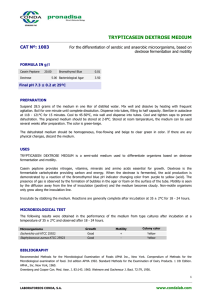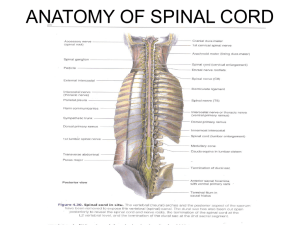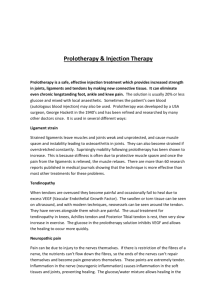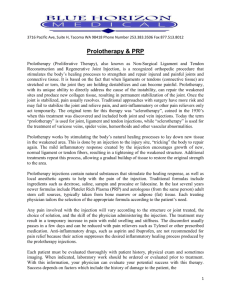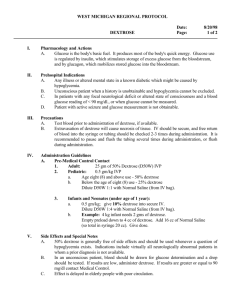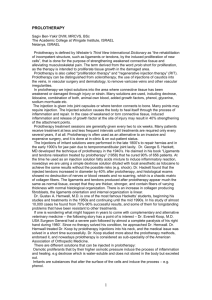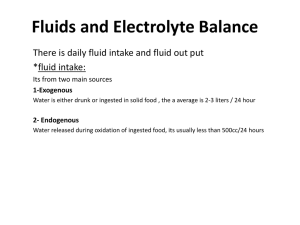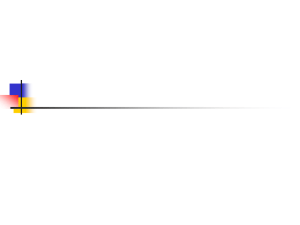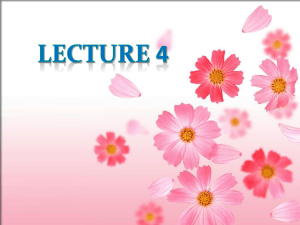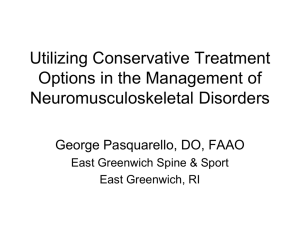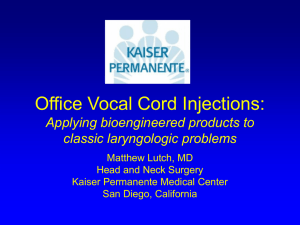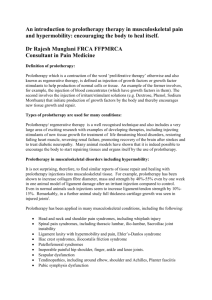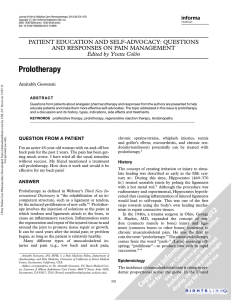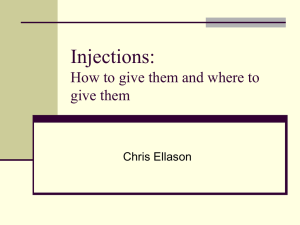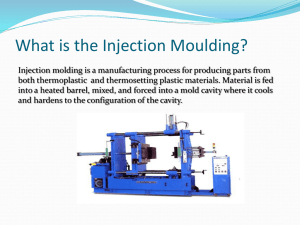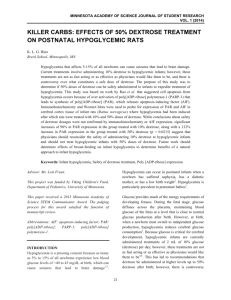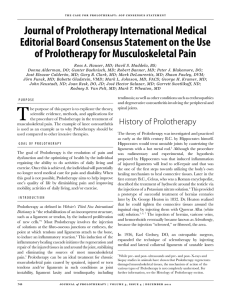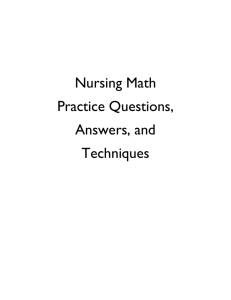Dextrose Prolotherapy Is Not Experimental Because
advertisement
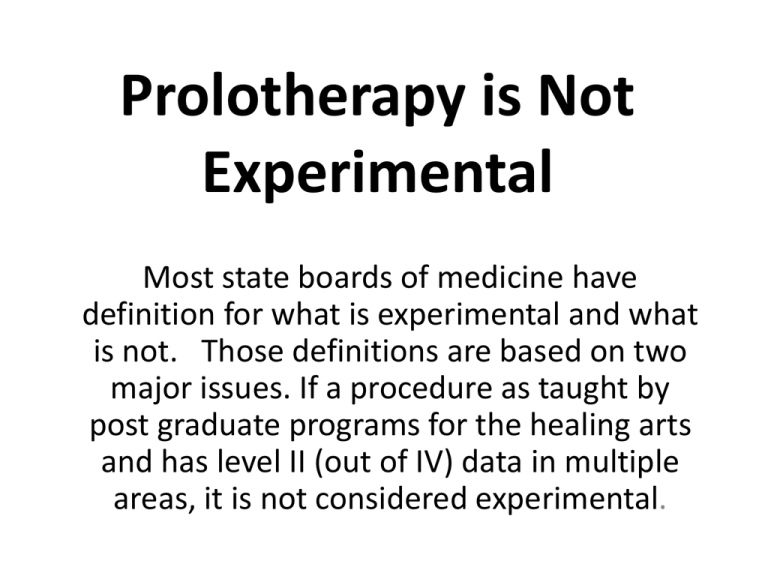
Prolotherapy is Not Experimental Most state boards of medicine have definition for what is experimental and what is not. Those definitions are based on two major issues. If a procedure as taught by post graduate programs for the healing arts and has level II (out of IV) data in multiple areas, it is not considered experimental. Dextrose Prolotherapy Is Not Experimental Because • It is taught as an acceptable method procedure by one or more approved post graduate programs for the healing arts. It is taught as an acceptable method procedure by one or more approved post graduate programs for the healing arts. • The official listing of Specialty Colleges within the American Osteopathic Association on the AAOM website includes 23 such specialties: addiction medicine, allergy and immunology, anesthesiology, dermatology, emergency medicine, family medicine, internal medicine, medical informatics, neurology and psychiatry, obstetrics and gynecology, occupational and preventative medicine, ophthalmology and otolaryngology, orthopedics, osteopathy, pathology, pediatrics, physical medicine and rehabilitation, proctology, prolotherapy and integrative pain management, radiology, rheumatology, sports medicine, and surgery. It is taught as an acceptable method procedure by one or more approved post graduate programs for the healing arts. • B. Prolotherapy is performed and taught to Family Medicine residents on a regular basis at the University of Wisconsin School of Medicine and Public Health. This is done through lectures and through hands on training in numerous clinical settings. Residents in this program also participate in a 2 week hands on CME training program in prolotherapy in Honduras. This counts as part of their orthopedic elective time in the residency. The UW Family Medicine Residency is one of the largest in the nation. It is taught as an acceptable method procedure by one or more approved post graduate programs for the healing arts. • C. “In addition the The University of Wisconsin School of Medicine and Public health sponsors post graduate CME programs in prolotherapy through the UW Department of Continuing Medical Education. These are held annually on the UW campus. “ Jeffrey J. Patterson, Professor of Family Practice at U.W Wisconsin jjpatter@wisc.edu. Dextrose Prolotherapy Is Not Experimental Because • It is based upon sufficient learned publications supporting the safety and efficacy? (Level I or II on a I-IV scale in multiple areas) U.S. Preventative Service Task Force Basic Classification of Evidence • Level I: Well designed RCT (s) with clinical and statistically significant evidence. • Level II: Well designed: II-1 Controlled trials without randomization. Controlled treatment comparison studies. II-2 Cohort (delayed Rx) studies from more than one center. II-3 Uncontrolled trial with dramatic result. Uncontrolled trial with blindable objective outcome measure. Level III. Substantially flawed RCTs or other controlled studies. Single well designed cohort or case control study. Five* Areas of Level I Evidence • Dextrose injection is more effective than steroid injection in treating chronic SI joint pain. (1 RCT) • Dextrose injection is more effective than lidocaine or usual care in symptoms elimination in OSD. (1 RCT) • Dextrose injection is more effective for pain reduction and functional improvement in knee osteoarthritis than exercise alone. (1 Randomized crossover trial) • Dextrose injection is more effective than lidocaine in pain reduction and range of motion improvement in OA of the hands. (1 small RCT) • Dextrose/NaMorr is more effective than saline in improving pain and strength in subjects with lateral epicondylosis. (1 small RCT) Three Areas of Level II-1 Evidence • Osteoarthritic knees injected with dextrose improved in knee ROM and subjective swelling more than knees injected with lidocaine. Pain, swelling, range and buckling tendencies increasingly improved over 1 year follow-up. • Both dextrose and saline injection result in sustainable and significant improvements in pain and disability in chronic low back pain patients. • Compared to a well studied and effective treatment (ELE) of Achilles tendinosis, both LT and combination treatment result in faster improvement in symptoms but no significant different in eventual outcome. (LT) Four Areas of Level II-3 Evidence • Dextrose injection in groin pain results in higher full sport return than any therapy study and as much as expensive surgical options. • Dextrose injection in knee osteoarthritis results in substantial long term functional improvement. (Twice the MCID) • Dextrose intraarticular injection reduces pain, swelling and ACL laxity by objective machine measure progressively to 36 months in knee OA patients with KT-1000 documented ACL laxity. • Dextrose injection in Hypoechoic regions in Achilles tendinosis results in impressive pain reduction accompanied by objective changes in non blinded ultrasound measurements. U.S. Preventative Services Taskforce Recommendations for When Doctors Should Discuss a Treatment. • Good evidence Benefit > Risk (Level I evidence and minimal risk) • Fair evidence Benefit > Risk (Level 2 evidence and minimal risk) Conclusion: Prolotherapy has more evidence than most treatments doctors use and it should be mentioned as an option.
